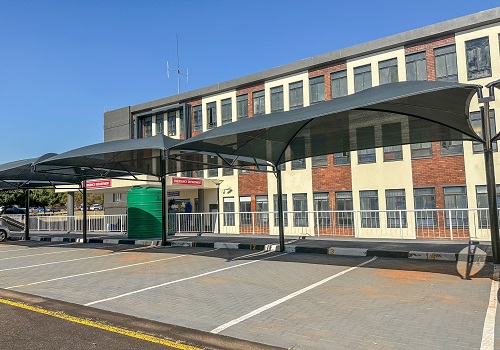
The Gauteng Department of Health has prioritised infrastructure maintenance and refurbishment across its facilities to improve patient experience of care and working conditions for its employees.
The infrastructure improvement plan which is currently underway is also critical as part of the preparation for the rollout of the National Health Insurance (NHI).
Currently, 22 out of 36 Community Health Centres (CHCs) inspected were found to be compliant, and 14 of the 37 hospitals inspected have also certified as compliant and meeting ideal hospital requirements in terms of the recent assessments by the Office of the Health Standards Compliance. Both the CHCs and hospitals were certified as compliant for NHI. Additionally, 263 of the 349 primary health care Centres have met compliance standards. This demonstrates the province’s progress in ensuring that healthcare facilities are NHI-ready.
The NHI will play an important role in improving access to healthcare services by allowing individuals to use the nearest accredited healthcare facilities, whether public or private. This approach will reduce the need for long-distance travel, ease pressure on public hospitals, and provide better healthcare access to the public.
Significant infrastructure improvements at healthcare facilities have already been made across the province, with notable projects include the refurbished and expanded Accident and Emergency at Helen Joseph Hospital, Bertha Gxowa Mental Health Unit, among others.
There is a strong focus on improving Accident and Emergency Departments and neonatal facilities, such as those at Bertha Gxowa, South Rand, Tembisa, Hellen Joseph, Dr George Mukhari Academic and Chris Hani Baragwanath Academic hospitals, to ensure that they are fully equipped to meet the growing demand for healthcare services in the province.
The phased approach to NHI implementation will allow the GDoH to continue upgrading and expanding healthcare facilities. The Department understands the urgency of addressing the infrastructural challenges in the healthcare facilities, however and remains committed to a phased approach that prioritises the most critical areas first as this process of upgrading and maintaining facilities requires careful planning and allocation of resources.
“We are aware of the challenges faced by our healthcare system; we remain committed to addressing the issues raised and transform our facilities to better serve our communities. We are determined to ensure that our healthcare workers have the necessary resources needed to provide high-quality care,” said Gauteng Health and Wellness MEC, Nomantu Nkomo-Ralehoko.
In addition, the Department is also rolling out technological innovations to improve the healthcare delivery by digitising patient records, streamlining care and reducing waiting times. By 2025, the Department aims to have 70% of all patient records fully digitalized to further enhance the efficiency of healthcare services.
SOURCED FROM THE GPG.

